By Bill Browne.
In 2013, I submitted my thesis for Honours in Law at the Australian National University. You can read the 13,000-word essay on SSRN. I've finally written a summary of my thesis which is closer to a thousand words.
Summary
I argue that the current copyright system does not strike an ideal balance between public access to works and incentives for creators to make those works. I propose an alternative: a “monopoly marketplace” where creators choose only the monopolies that they want and only for the durations that they want.
Rationale
Creative and informative works cost time, money and energy to make
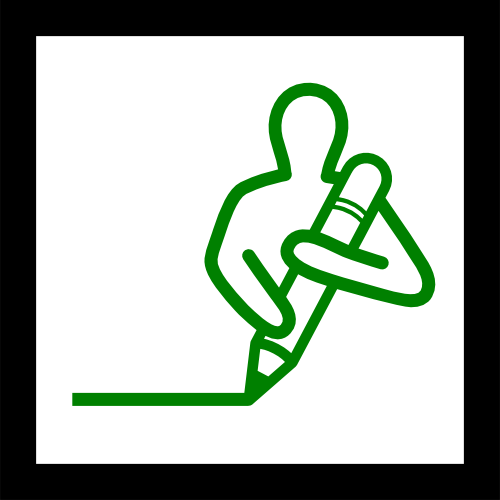
… but practically nothing to distribute…

Ideally, anyone would be able to distribute and adapt works, which would maximise a work’s benefit.

But if anyone can sell or distribute a work, why buy it from the creator?

And if you’re not getting paid to create, why create?

If I receive the benefit of something whether or not I contribute to its creation/maintenance, I will be better off if I do not contribute.
But if enough people think like that, the thing is not created or maintained, and I am worse off than if I (and everyone else) contributed.

There are a number of ways of providing public goods while avoiding the free rider problem described above.
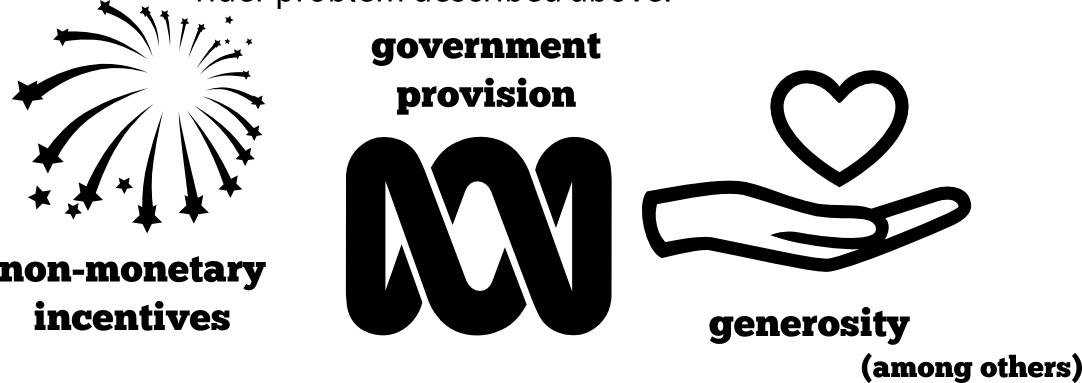
And artificial scarcity. Give creators a de jure monopoly, and people are no longer contributing to a public good. They’re purchasing a single item. Their choice becomes much simpler:

That’s the approach taken by the current copyright system. It is predicated on the assumption that: Unlimited access to fewer works is worse than limited access to more works.

In fact, there’s a few more factors we need to weigh up:
Without copyright

With copyright

What if we could reform the system so that more works exist or are available, access is less limited, deadweight losses are lower and our civil liberties are less infringed upon?

Proposed reforms
Shorter terms
Copyright currently runs for 70 years after the death of the author.
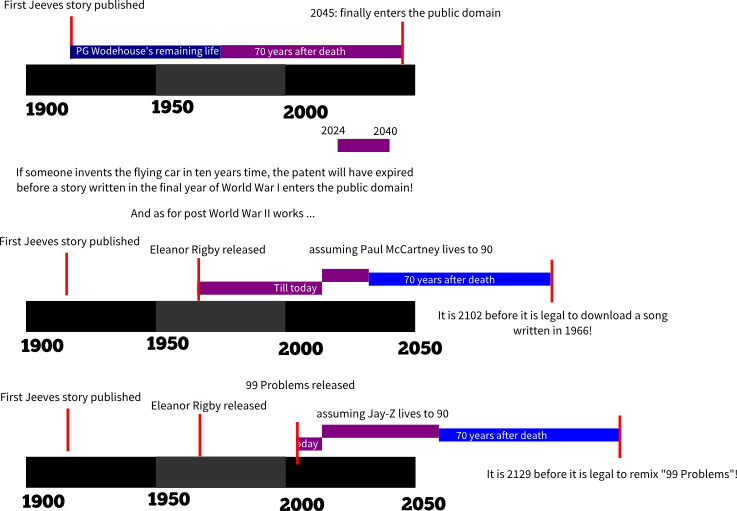
Studies into the optimal copyright term have suggested terms like 2 years or 15 years. If the copyright term were 15 years, currently in the public domain would be:

Movies
There's Something About Mary, The Shawshank Redemption, Jurassic Park, The Matrix, Fight ClubSongs
"Smells Like Teen Spirit", Nirvana; "Sweetest Thing", U2; "Baby One More Time", Britney SpearsBooks
A Game of Thrones, The Wind-Up Bird Chronicle, Harry Potter and the Chamber of Secrets
Require registration
Currently, copyright arises automatically, which means that many works are subject to copyright even though their creators are happy for them to be shared - or they remain subject to copyright many years after the creator has ceased to care if they are shared
A fee
When the government takes or damages private property for the public good, it pays the owner of the property. By extension, when a citizen takes a public good and turns it into a private monopoly - which is what happens with copyright - they should pay the public.
Limited scope
Copyright would be limited to verbatim copying of a work. If you wanted to build up, adapt, translate, perform, transform, create a collage from, etc., a work, that would be acceptable.
The Monopoly Marketplace
Step One:
Create the work.

Step Two:
Distribute it however you like
Rule 1
Automatic complete copyright protection for the first year after publication
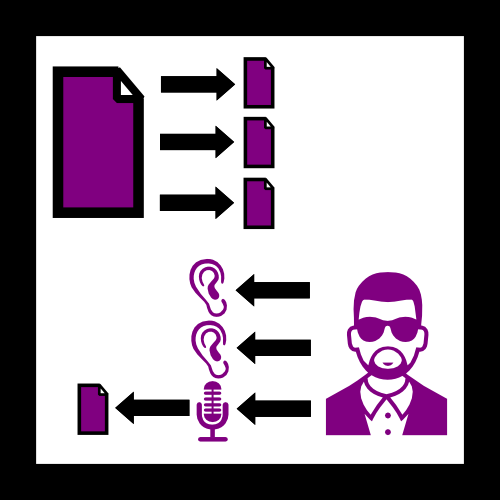
Step Three:
After a year, assess the work and make a few decisions:
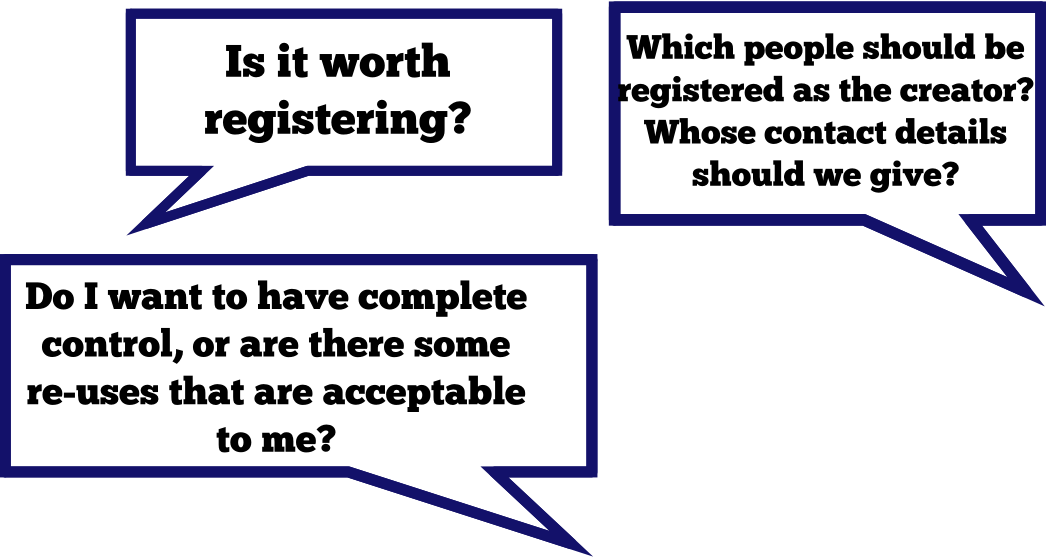 </a>
</a>
Rule 2
The copyright registration is the definitive source of who the creators are, where to contact them, what the copyright conditions are, etc. If you sell the copyright monopoly to another, this must be recorded along with the registration. The registered copy or copies of the work are the definitive ones.
Step Four:
Decide how extensively you want to limit access to the work:
 Do not register it/Register it as unlimited
Do not register it/Register it as unlimited
No copyright protection exists.
 Libre limitation
Libre limitation
The only limits that apply to this work are moral conditions (see below).
Fee: None. Duration: Until your death.
 Partial limitation
Partial limitation
Copying the work is forbidden, but performing the work or adapting it (like writing a sequel, turning it into a stage play, sampling the song in your own song, etc.) is legal.
Also can have moral conditions attached.
Fee: Annual renewal fee of $50, plus 5% of the revenue you make from the creative work. Duration: 28 years.
 Full limitation
Full limitation
The work cannot be reproduced, copied, adapted, performed, etc. Very similar to current copyright.
Moral conditions are redundant.
Fee: Annual renewal fee of $50, plus 5% of the revenue you make from the creative work. Duration: 14 years.
Step Five:
Decide what other conditions you want attached to the work.
(These are conditions that do not limit who can use the work or what they can use it for, they just place conditions around the use of the work).
Duration: Life of the author
Fee: None, but must be renewed every 10 years
 Attribution
Attribution
Give reasonable credit to the creator
 Non-association
Non-association
Re-uses of the work must not promote the work by using the name of the creator or the title of the original work
 Reciprocity
Reciprocity
Re-uses of the work must not be under a stricter monopoly than the original work.
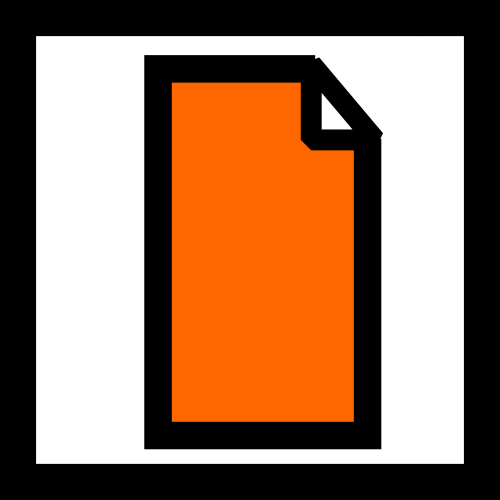 Universal provision
Universal provision
Re-uses of the work must be available to all people at no cost, such as through a free download
 Information
Information
The creator must be told when the work is being re-used and a copy given to the creator on request
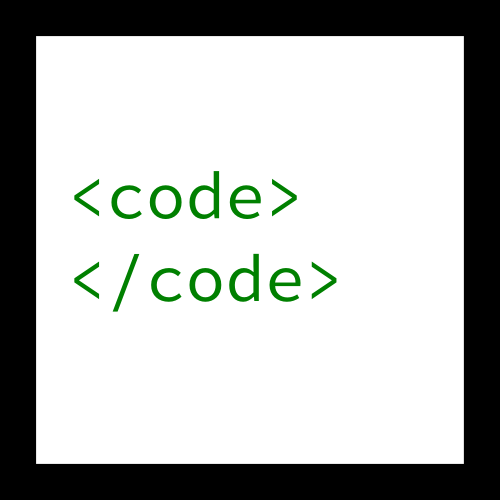 Shared source
Shared source
Re-uses of the work must make the read-write source files of the work available
Examples
 We made a movie. It’ll open in cinemas, move to DVD within a year, appear on free to air TV within a few years, have a brief merchandising burst and have made the vast majority of its earnings in the first five years. The full limitation is ideal for us.
We made a movie. It’ll open in cinemas, move to DVD within a year, appear on free to air TV within a few years, have a brief merchandising burst and have made the vast majority of its earnings in the first five years. The full limitation is ideal for us.
 I’m an academic. I get tenure if enough people read and cite my papers. I want practically nothing to get in the way of that - except I’d like to know when my paper is used so I can tell the dean!
I’m an academic. I get tenure if enough people read and cite my papers. I want practically nothing to get in the way of that - except I’d like to know when my paper is used so I can tell the dean!
 I’m a musician. Buy my album - don’t download it! But if you want to play my songs in the pub or sample a beat in your own songs, go for it!
I’m a musician. Buy my album - don’t download it! But if you want to play my songs in the pub or sample a beat in your own songs, go for it!
 That Facebook status update I just made? Yeah, that’s not going to need copyright protection.
That Facebook status update I just made? Yeah, that’s not going to need copyright protection.
And there it is! Please let me know what you think.
Art attribution
Writing designed by Takao Umehara from the Noun Project
Kanye West designed by Vlad Likh from the Noun Project
Ear is in the public domain.
Microphone designed by Yi Chen from the Noun Project
Woman and man are in the public domain.
Independence Day designed by Yi Chen from the Noun Project
Charity designed by Vladimir from the Noun Project
